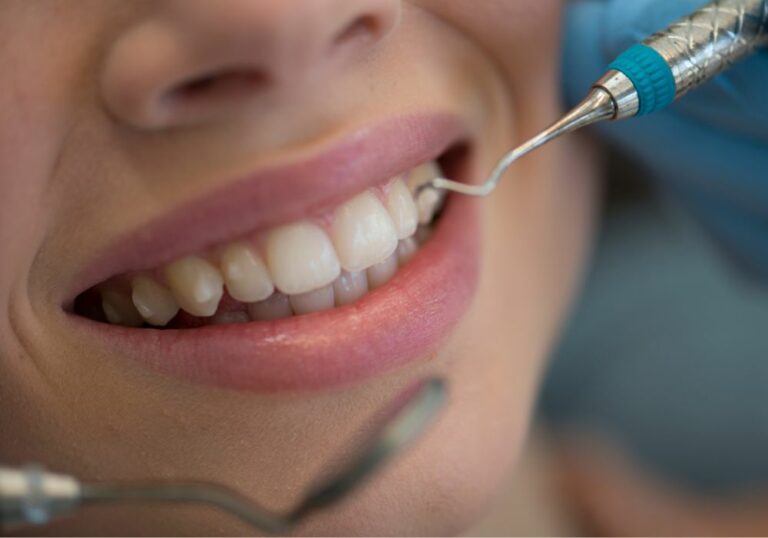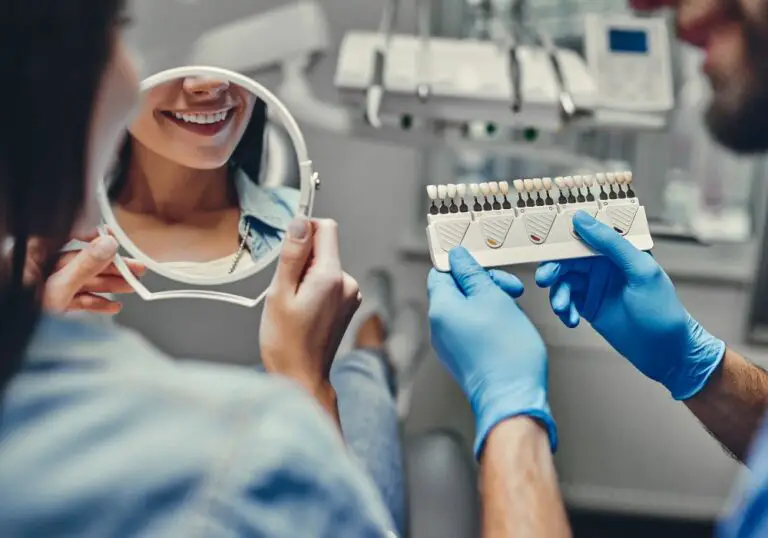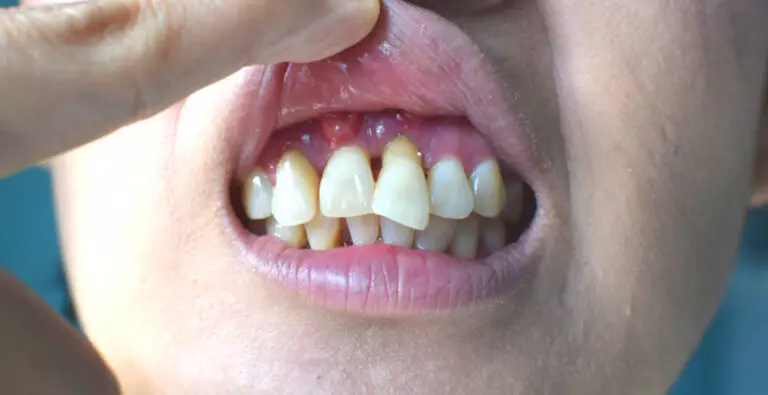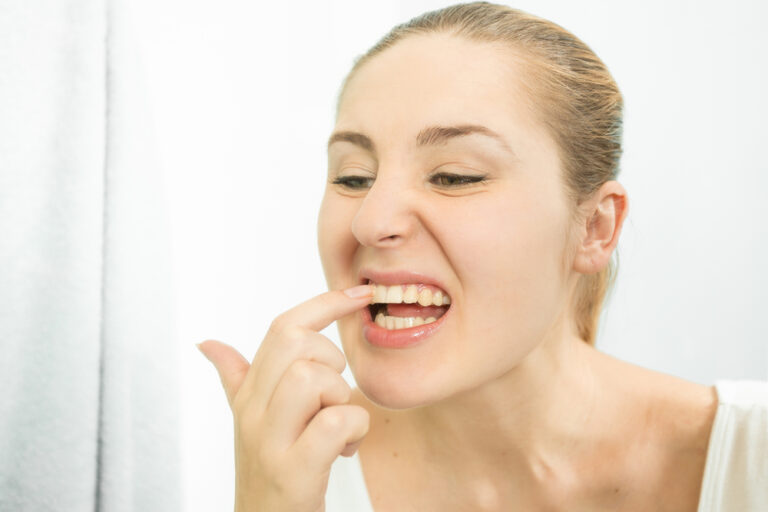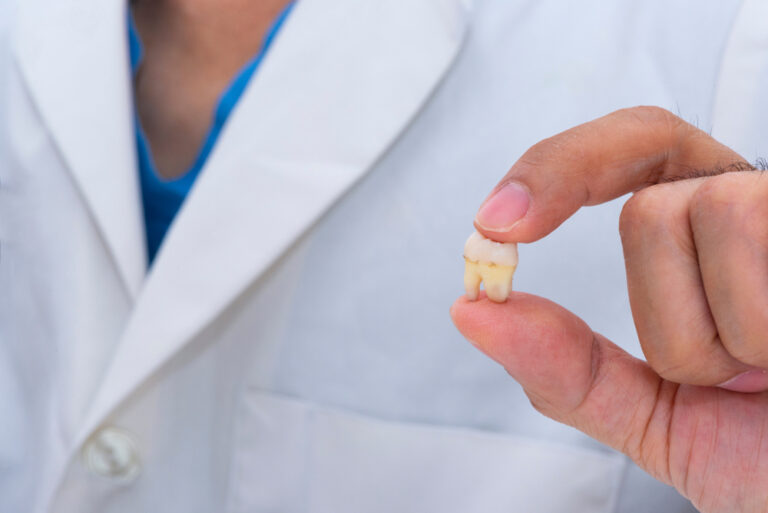Do you ever wonder what happens when you brush your teeth before bed? Brushing your teeth before bed is essential for maintaining good oral hygiene. It helps remove food particles and plaque from your teeth, preventing bacteria from multiplying and causing tooth decay.
When you brush your teeth before bed, you are also helping to prevent gum disease. Gum disease can cause inflammation, bleeding, and even tooth loss if left untreated. Brushing your teeth before bed removes plaque and bacteria that can contribute to gum disease, keeping your gums healthy and strong.
Additionally, brushing your teeth before bed can help freshen your breath and improve your overall oral health. It’s important to use fluoride toothpaste and brush for at least two minutes to get the most benefit from your brushing routine. So, don’t forget to brush your teeth before bed tonight to keep your smile healthy and bright!
The Importance of Nightly Brushing

Taking care of your oral hygiene is important, and brushing your teeth before bed is a crucial part of it. Here are some reasons why:
Benefits of Nighttime Oral Hygiene
Brushing your teeth before bed helps remove the food particles stuck in your teeth and quashes the bacteria. It also helps remove plaque, which is the yellow substance that settles on your teeth and makes them look dirty. If you maintain a brushing practice every night, it prevents the build-up of plaque in the long run.
Moreover, brushing before bed can help prevent cavities, gingivitis, and gum disease, as well as other systemic diseases in the body. If you go to bed without brushing, that means your teeth are covered in plaque and bacteria while you sleep, weakening the enamel.
Preventing Oral Diseases
When you brush your teeth before bed, you remove the bacteria and plaque that have accumulated during the day. This helps prevent the development of cavities and gum disease, which can lead to tooth loss and other oral health problems.
Gum disease is a serious condition that can cause inflammation, bleeding, and even tooth loss. It has also been linked to other health problems, such as heart disease and diabetes. By brushing your teeth before bed, you can help prevent the development of gum disease and reduce your risk of other health problems.
In conclusion, brushing your teeth before bed is an important part of your oral hygiene routine. It helps prevent the build-up of plaque, cavities, and gum disease, and reduces your risk of other health problems. Make sure to brush your teeth every night before bed to keep your teeth and gums healthy.
The Process of Brushing Before Bed
Brushing your teeth before bed is an essential part of maintaining good oral hygiene. Here’s what you need to know about the process:
Choosing the Right Toothpaste
When selecting a toothpaste, it’s important to choose one that contains fluoride. Fluoride helps to strengthen tooth enamel and prevent tooth decay. Look for toothpaste that has the American Dental Association (ADA) seal of approval. This seal indicates that the toothpaste has been thoroughly tested and is safe and effective for use.
Proper Brushing Technique
To properly brush your teeth before bed, follow these steps:
- Wet your toothbrush and apply a pea-sized amount of toothpaste.
- Hold your toothbrush at a 45-degree angle to your teeth.
- Use gentle circular motions to brush the front, back, and top surfaces of your teeth.
- Be sure to brush your tongue as well to remove bacteria and freshen your breath.
- Spit out the toothpaste and rinse your mouth with water.
- Rinse your toothbrush with water and store it in a clean, dry place.
Remember to brush for at least two minutes each time you brush your teeth. You may also want to consider using an electric toothbrush, which can be more effective at removing plaque and bacteria.
By following these steps and making brushing before bed a part of your daily routine, you can help to keep your teeth and gums healthy and prevent tooth decay and gum disease.
Effects on Oral Health

Brushing your teeth before bed is an important part of maintaining good oral health. Here are a few ways it can benefit your teeth and gums:
Reduction in Plaque Build-Up
Plaque is a sticky film of bacteria that can build up on your teeth and gums throughout the day. If left untreated, it can harden into tartar and lead to gum disease and tooth decay. By brushing your teeth before bed, you can remove the plaque that has accumulated throughout the day and prevent it from causing long-term damage to your oral health.
Prevention of Gum Disease
Gum disease is a common condition that can cause inflammation, bleeding, and even tooth loss if left untreated. Brushing your teeth before bed can help prevent gum disease by removing the bacteria that can cause it. It’s important to brush your teeth gently and thoroughly, paying special attention to the gumline where bacteria can accumulate.
Prevention of Tooth Decay
Tooth decay occurs when the bacteria in your mouth produce acid that erodes the enamel on your teeth. Brushing your teeth before bed can help prevent tooth decay by removing the bacteria that produce this acid. Be sure to use fluoride toothpaste to help strengthen your enamel and protect your teeth from decay.
Overall, brushing your teeth before bed is an important part of maintaining good oral health. By reducing plaque build-up, preventing gum disease, and preventing tooth decay, you can keep your teeth and gums healthy for years to come.
Effects on Overall Health

Brushing your teeth before bed not only helps to prevent dental issues, but it can also have positive effects on your overall health.
Improvement in Sleep Quality
When you brush your teeth before bed, you remove the bacteria and plaque that can build up in your mouth throughout the day. This can reduce the risk of developing gum disease and tooth decay, which can cause discomfort and pain that can interfere with your sleep.
Furthermore, brushing your teeth before bed can help to combat the effects of dry mouth. Dry mouth can lead to bad breath, an increased risk of cavities, and gum disease, all of which can disrupt your sleep. By removing bacteria and plaque, you reduce the potential for oral health issues associated with dry mouth, leading to a more restful night’s sleep.
Reduction in Risk of Heart Disease
Studies have shown that there is a link between poor oral health and an increased risk of heart disease. When you brush your teeth before bed, you remove the bacteria and plaque that can cause inflammation in your mouth. This inflammation can spread throughout your body, leading to an increased risk of heart disease.
By practicing good oral hygiene, including brushing your teeth before bed, you can reduce your risk of developing gum disease and tooth decay, which can lead to inflammation in your mouth. This can help to reduce your risk of developing heart disease.
Overall, brushing your teeth before bed is an important part of good oral hygiene that can have positive effects on your overall health. By removing bacteria and plaque, you can reduce the risk of developing dental issues and improve your sleep quality, while also reducing the risk of developing heart disease.
Common Mistakes and How to Avoid Them

When it comes to brushing your teeth before bed, there are a few common mistakes you might be making. Here are some of the most common mistakes and how to avoid them:
Brushing Too Hard
Brushing your teeth too hard can cause damage to your teeth and gums. It can lead to enamel erosion, tooth sensitivity, and gum recession. To avoid this, use a soft-bristled toothbrush and brush gently in circular motions. Avoid using too much pressure and let the bristles do the work for you.
Not Brushing for Long Enough
Brushing your teeth for at least two minutes is recommended to ensure that you have thoroughly cleaned your teeth. If you’re not brushing for long enough, you may be leaving behind plaque and bacteria that can cause tooth decay and gum disease. To ensure that you’re brushing for long enough, set a timer or use a toothbrush with a built-in timer.
Skipping Flossing
Flossing is an important part of your oral hygiene routine. It helps to remove plaque and food particles from between your teeth and along the gum line. If you’re skipping flossing, you’re missing an important step in your oral hygiene routine. To make flossing easier, try using floss picks or a water flosser. Make sure to floss at least once a day, preferably before bed.
By avoiding these common mistakes, you can help to improve your oral health and prevent tooth decay and gum disease. Remember to brush gently, for at least two minutes, and to floss daily.
Frequently Asked Questions
How long before bed should you brush your teeth?
It is recommended to brush your teeth at least 30 minutes before going to bed. This allows enough time for the fluoride in toothpaste to be absorbed by your teeth, helping to strengthen and protect them.
Can I skip brushing my teeth one night?
While it is not recommended to skip brushing your teeth, it is better to skip brushing one night than to skip brushing altogether. If you find yourself in a situation where you cannot brush your teeth before bed, try to at least rinse your mouth with water to help remove any food particles and bacteria.
What to do if you haven’t brushed your teeth in a month?
If you haven’t brushed your teeth in a month, it is important to see a dentist as soon as possible. Neglecting oral hygiene for this long can lead to serious dental problems such as cavities, gum disease, and tooth loss.
Is it ok to not brush your teeth for one day?
While it is not recommended to skip brushing your teeth, missing one day is unlikely to cause any serious dental problems. However, it is important to maintain good oral hygiene habits to prevent the buildup of plaque and bacteria in your mouth.
Is it better to brush your teeth before bed or after waking up?
It is recommended to brush your teeth twice a day, once in the morning and once before bed. Brushing before bed is especially important as it helps to remove any food particles and bacteria that have accumulated throughout the day, reducing the risk of dental problems.
Is it good to brush teeth before bed?
Yes, brushing your teeth before bed is an important part of maintaining good oral hygiene. It helps to remove any food particles and bacteria that have accumulated throughout the day, reducing the risk of dental problems such as cavities and gum disease.

